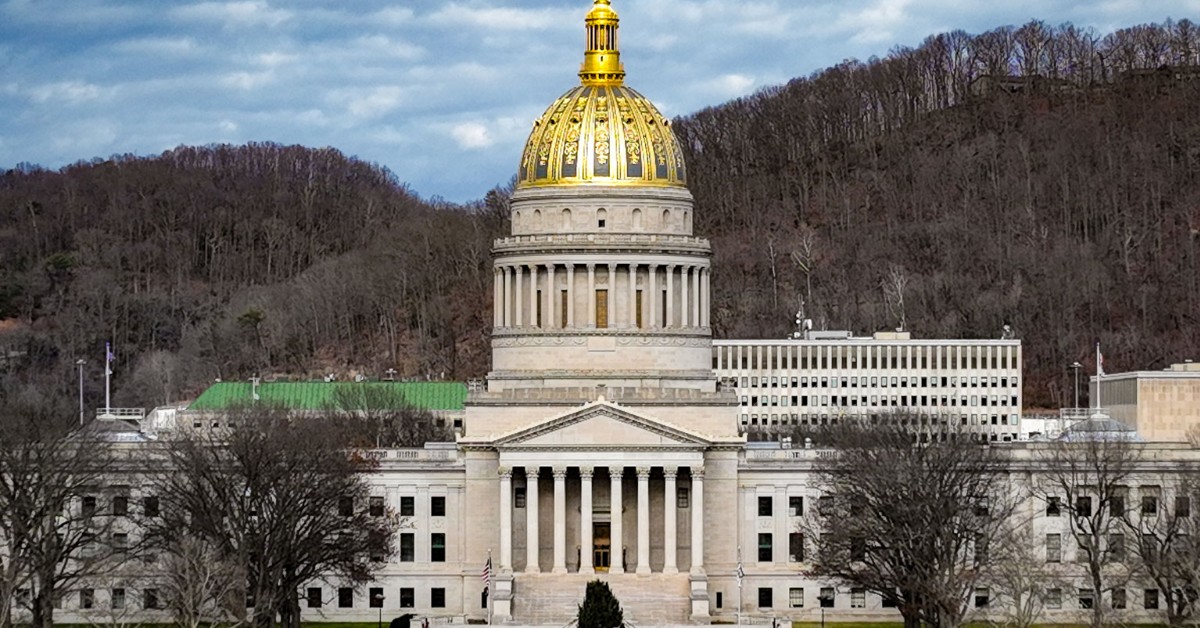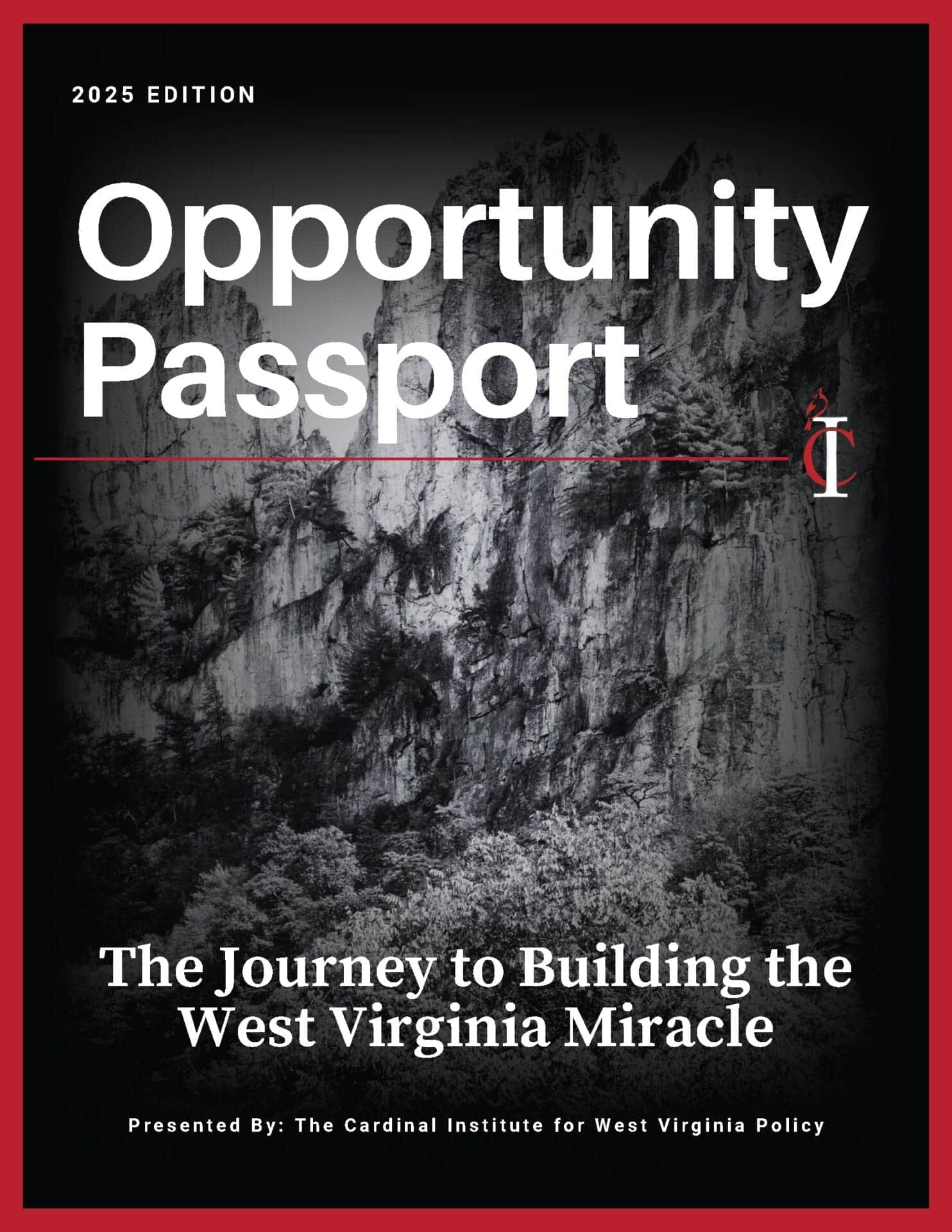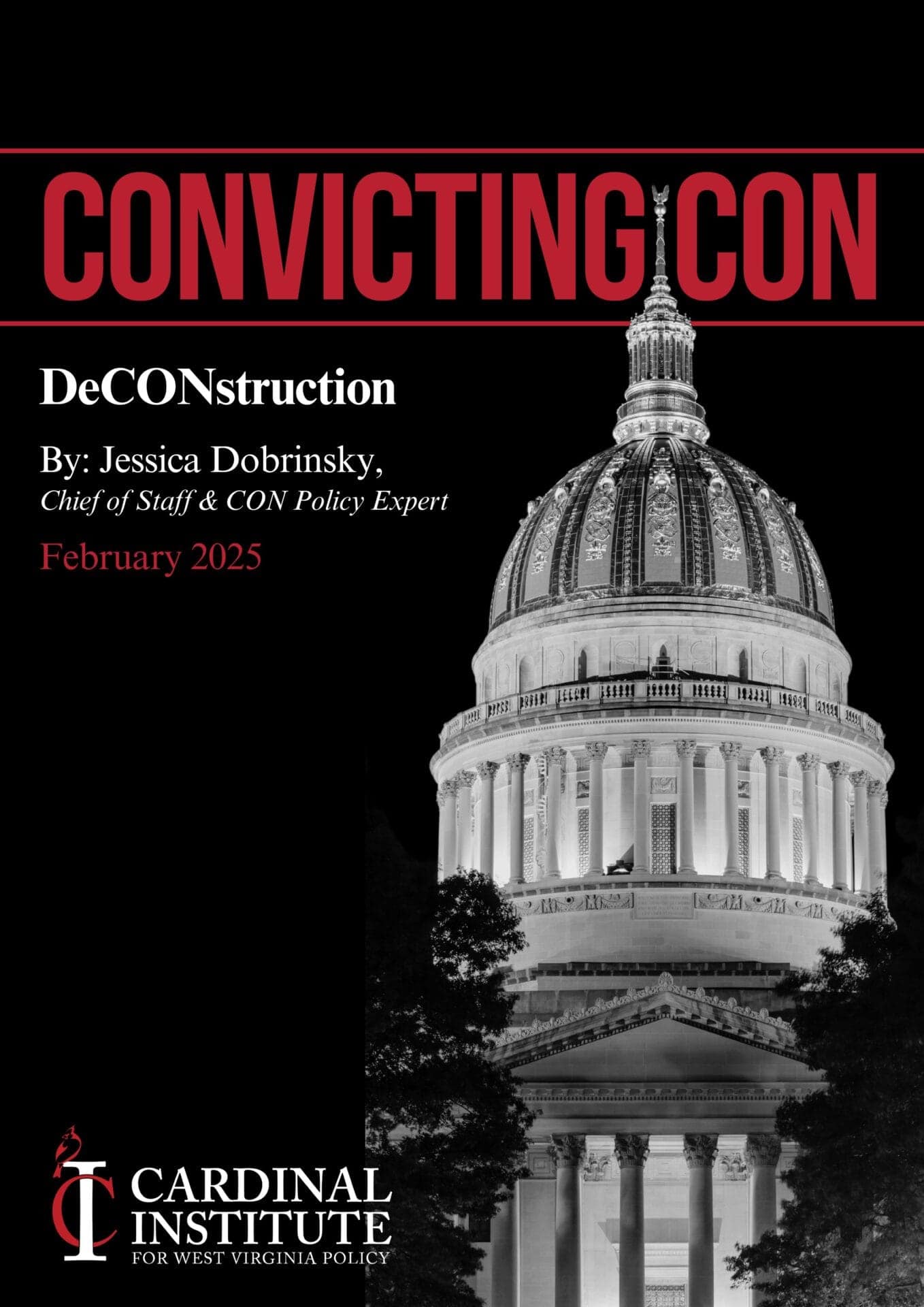
Reflections on the 2023 State of the State Address
Reflections on the 2023 State of the State Address
January 11th, 2023 West Virginia State of the State Address
On Wednesday, January 11, 2023, slightly past 7pm, Gov. Jim Justice delivered what was, perhaps, the most optimistic and upbeat State of the State Address of the seven he has delivered during his tenure as governor. Like many speeches of that length (well over an hour), there were some good things, great things, bad things, “meh” things, cringeworthy things, and things firmly in the category of “more information needed.”
From the Cardinal Institute’s perspective, it was a relatively promising speech. Two of Cardinal’s three main legislative priorities going into this year’s session (tax cuts and education choice) were remarked upon with a similar philosophy. The third and unmentioned priority, eliminating certificate of need, remains somewhat esoteric, and the fight for that has only just begun. So, let’s jump into the speech.
“30-10-10” Income Tax Reduction Plan
“30-10-10” represents Gov. Justice’s plan to eliminate half the of the state’s income tax over a three-year period. 30 percent in the first year, followed by successive 10 percent reductions, for a total of a 50 percent reduction in the personal income tax. The state collects approximately $2.5 billion from the personal income tax. This has historically accounted for around 40 percent of the state’s general revenue sources. The first year would be around $750-800 million in fewer dollars going into state coffers. Stated differently, $750-800 million more dollars circulating in the private economy.
Why Income Tax Reduction is Good
If we may back up just a bit, it is worthwhile asking, “why reduce the income tax?”
There are number of reasons, ranging from economic theory (read: Laffer Curve and Greg Mankiw’s thoughts) and growth to population migrations and interstate competition. I won’t explain in depth here, but most of these reasons boil down to more money in the pockets of job-creators, employees, and citizens and fewer economic distortions.
So, why the controversy? There is a sweet spot between eliminating enough of the tax to incentivize population and economic growth in the medium to long-term and not blowing a hole in the budget in the short-term. In finance, we call this a “temporal misalignment” or “maturity mismatch.”
The governor seems to be aware of this with his somewhat cautious and measured approach to eliminating 50 percent of the income tax. Again, the cut needs to be big enough to incentivize growth in the medium-term, yet not so big in the short term that it wreaks havoc on the budget.
From where I stand now, I am inclined to agree with Gov. Justice’s approach. It is a big cut to be sure, but it allows for flexibility in the second and third years to course correct should circumstances dictate. Cardinal will be providing more commentary in the coming days and weeks, but this is a good place to begin the debate. The three-year timeline will also give the Legislative and Executive branches time to prepare cuts for wasteful line items in the state’s budget.
Education & School Choice
Continuing on the promising portion of the speech, Governor Justice also mentioned the necessity for school choice. In particular, he focused on the good things that the Hope Scholarship gives kids in West Virginia. As such, he announced a desired additional $15 million for the program. It remains unclear to what end. But it’s certainly a promising development as Gov. Justice has, traditionally, been lukewarm on the school choice issue, despite his signing of the monumental Hope Scholarship program into law back in 2021. Apart from school choice, Gov. Justice’s desire to see all K-12 curriculum posted online for citizens to see, is a big win for transparency, regardless of where one stands, politically.
Disappointments in the State of the State Address
What was disappointing about the speech?
Luckily, there was relatively little compared to past speeches. However, the desire to use $500 million in American Rescue Plan Act (ARPA) funds to lure companies to locate and expand in West Virginia is misguided. You simply cannot substitute economic planning, regardless of the party in power, for the wisdom of the market. Use the money to backstop any future budgetary crises, pay down the income tax, or let it collect interest. But do not use it for private subsidies or incentives – it’s just not good economics, even if it might be good politics.
Overall, it was a promising speech; I’m inclined to grade it a B+, for now. While Gov. Justice talked about many other promising and not-so-promising ideas, it broadly aligned with Cardinal’s legislative priorities and was conservative enough in its vision to inculcate a bit of optimism for the 60-day session.
Now, we wait.
Garrett Ballengee is the Executive Director for the Cardinal Institute for WV Policy.








